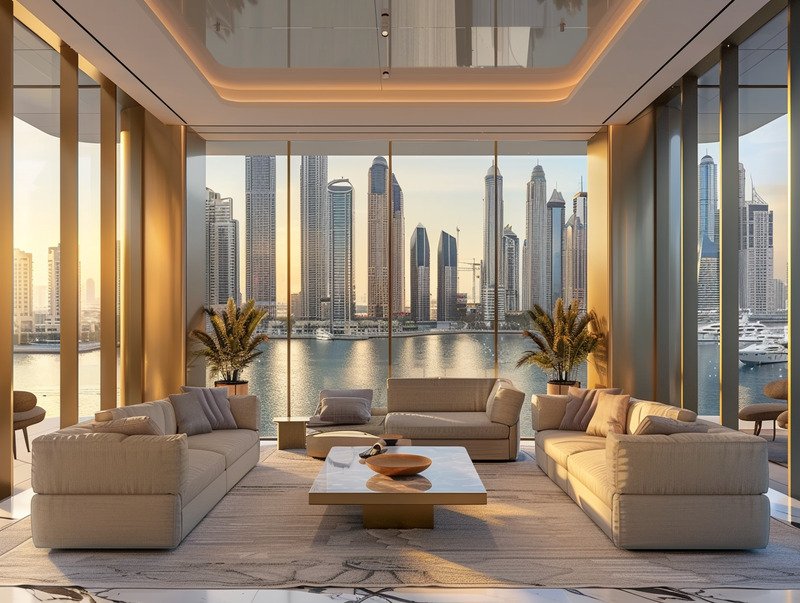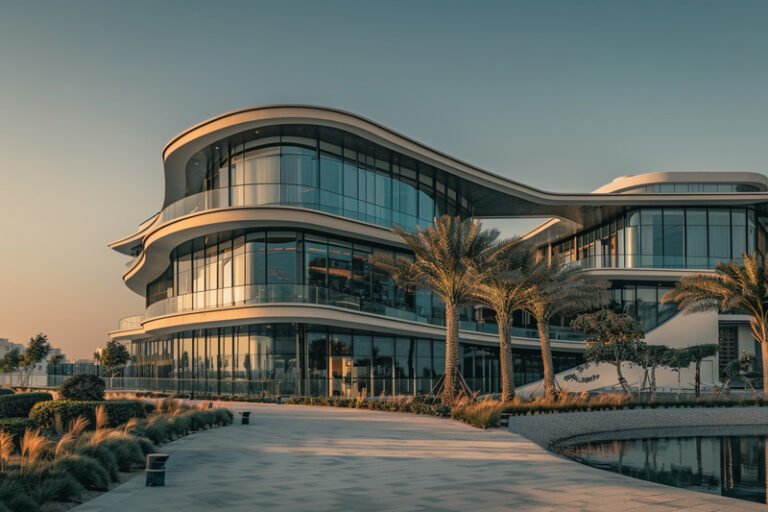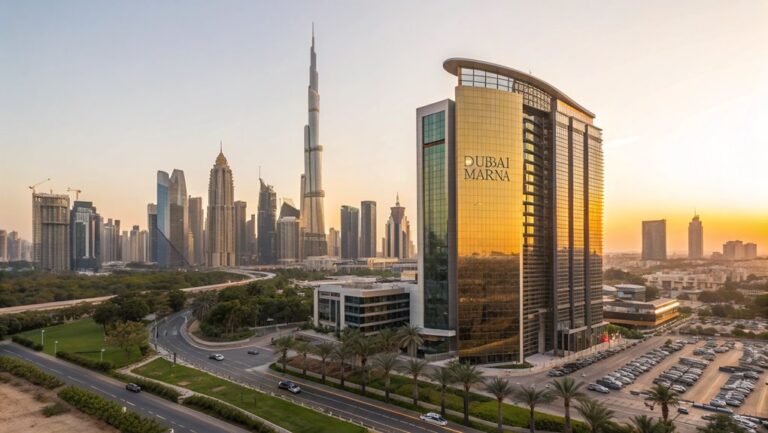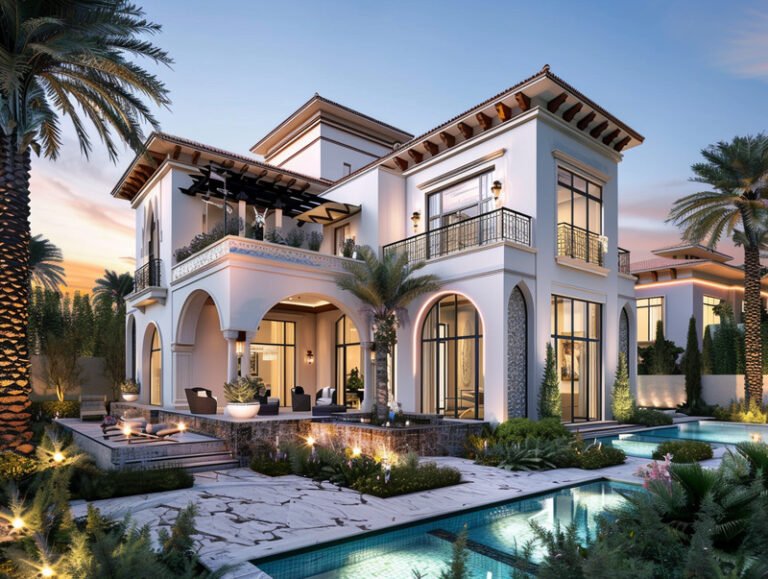Comparison of Fixed and Variable Mortgage Rates

In Dubai's dynamic real estate market, choosing between fixed and variable mortgage rates is a crucial decision for property buyers. This choice impacts your monthly payments and long-term financial strategy. Fixed rates offer stability in Dubai's ever-evolving market, while variable rates may provide savings if economic conditions are favorable.
Your decision should align with your risk tolerance, financial goals, and Dubai's current economic climate. Understanding each option's nuances is essential before committing to a mortgage in this unique market.
Dubai's property landscape is diverse, ranging from luxury apartments to sprawling villas. Fixed rates can provide peace of mind in this fast-paced environment, ensuring consistent payments regardless of market fluctuations.
Variable rates, on the other hand, may be attractive for those confident in Dubai's economic growth. They can potentially lead to lower interest payments if the market trends favorably.
Let us help you find the perfect property. Contact us to get started.
Consider your long-term plans in Dubai. If you're planning to stay for an extended period, a fixed rate might be more suitable. For shorter-term investments or those comfortable with market risks, a variable rate could be advantageous.
Dubai's real estate market is influenced by global economic trends and local policies. Stay informed about these factors to make an educated decision on your mortgage rate type.
Key Takeaways
In Dubai's dynamic real estate market, understanding mortgage options is crucial for property buyers. Fixed and variable-rate mortgages offer distinct advantages and considerations, tailored to the emirate's unique economic landscape.
Dubai's property market often sees fluctuations influenced by global economic trends, oil prices, and local policies. This volatility can significantly impact mortgage choices. Fixed-rate mortgages provide stability in monthly payments, appealing to those seeking predictability in Dubai's sometimes unpredictable market.
Variable-rate mortgages in Dubai typically start with lower interest rates, attracting investors looking for initial cost savings. These rates adjust based on the Emirates Interbank Offered Rate (EIBOR), reflecting local market conditions.
Fixed-rate mortgages in Dubai offer protection against potential interest rate hikes, a valuable feature in a market prone to economic shifts. This stability allows for easier long-term financial planning, especially for end-users or long-term investors.
Variable-rate mortgages in Dubai often include caps on rate increases, providing some security against extreme market fluctuations. They may also offer more flexibility with lower or no early repayment penalties, appealing to investors anticipating property flipping or early exits.
The choice between fixed and variable rates in Dubai depends on individual risk tolerance, investment strategy, and market outlook. Consultation with local financial advisors is recommended to navigate Dubai's unique real estate financing landscape.
Understanding Fixed-Rate Mortgages
Fixed-rate mortgages in Dubai's real estate market offer stability by locking in your interest rate for the entire loan term. This means your monthly principal and interest payments remain constant, making budgeting easier and providing protection against potential rate increases. You'll know exactly how much you'll pay each month, which can be beneficial if you prefer predictable expenses in Dubai's dynamic property market.
When considering a fixed-rate mortgage in Dubai, you'll need to decide between shorter and longer terms. Shorter terms usually come with lower interest rates but higher monthly payments, allowing you to build equity faster and pay less interest overall.
Longer-term mortgages offer lower monthly payments but accrue more interest over time. Your choice will depend on your financial goals and current situation in Dubai's real estate landscape.
While your interest rate remains constant, your total monthly payment may still change due to fluctuations in property fees and insurance premiums if these are included in your account.
Before committing to a fixed-rate mortgage in Dubai, carefully review the terms and consider consulting with a local financial advisor to ensure it aligns with your long-term plans in the emirate's property market.
Variable-Rate Mortgages Explained
Variable-rate mortgages in Dubai offer interest rates that fluctuate based on market conditions, potentially changing your monthly payments over time. These mortgages are typically tied to the Emirates Interbank Offered Rate (EIBOR), which serves as a benchmark for adjustments. As EIBOR rises or falls, your interest rate and monthly payments follow suit.
Variable-rate mortgages often start with lower initial rates compared to fixed-rate options, making them attractive to Dubai property buyers seeking immediate affordability. However, borrowers must be prepared for potential rate increases that could impact their budget.
Most Dubai lenders offer caps on rate increases to provide some safeguard against extreme fluctuations. It's crucial to understand the terms, including how often the rate can change and by how much.
While these mortgages can lead to savings during periods of low interest rates, they carry more risk than fixed-rate options. Carefully consider your financial situation and risk tolerance before choosing a variable-rate mortgage in Dubai's real estate market.
Pros of Fixed-Rate Options
When exploring mortgage options in Dubai's real estate market, fixed-rate mortgages offer several compelling advantages. These loans provide predictability, allowing for more effective budgeting and future planning. With a fixed interest rate throughout the loan term, homeowners can enjoy stable monthly payments, regardless of market fluctuations.
Fixed-rate mortgages in Dubai protect against rising interest rates, potentially saving substantial amounts over time. This stability is particularly beneficial in the emirate's dynamic economic environment. These mortgages also offer simplicity, eliminating the need to constantly monitor market changes.
In Dubai's property market, fixed-rate options often come with longer terms, typically ranging from 15 to 25 years. This extended period can result in lower monthly payments, making homeownership more accessible for many buyers in the emirate.
Fixed-rate mortgages are easier to understand and compare, which is helpful when navigating Dubai's competitive real estate market. If interest rates fall significantly, homeowners can refinance to take advantage of lower rates without the risk of future increases.
Advantages of Variable-Rate Loans
In Dubai's ever-evolving real estate market, variable-rate loans offer distinct advantages over fixed-rate mortgages. These loans typically feature lower initial interest rates, potentially resulting in significant short-term savings. For investors planning to sell or refinance within a few years, variable-rate loans can be particularly attractive, allowing them to capitalize on lower rates without prolonged risk exposure.
Variable-rate loans provide flexibility in Dubai's property market. As interest rates fluctuate, borrowers can benefit from falling rates without refinancing. Monthly payments adjust automatically, potentially reducing costs over time.
Many variable-rate mortgages in Dubai include interest rate caps, limiting the maximum rate increase. This feature protects borrowers from extreme market fluctuations, offering peace of mind in uncertain economic conditions.
Early repayment penalties are often lower or non-existent with variable-rate loans in Dubai. This allows property owners to make extra payments or settle their mortgage earlier without incurring substantial fees, ideal for those expecting increased income or financial windfalls.
Market Conditions and Rate Trends
Dubai's mortgage market has seen significant changes recently, with rates trending upward due to global economic pressures. These conditions impact both fixed and variable mortgage rates. As central banks worldwide tighten monetary policies to combat inflation, mortgage rates in Dubai are expected to continue rising in the short term. The local real estate market and government policies also play a crucial role in shaping mortgage rates in the emirate.
Fixed rates in Dubai tend to be more stable, while variable rates are more responsive to market changes. Currently, the spread between fixed and variable rates has widened, with fixed rates generally being higher. This reflects lenders' expectations of future rate increases in the Dubai market.
When considering a mortgage in Dubai, it's essential to keep an eye on long-term trends. Historically, rates have been relatively low, but they're now returning to more typical levels. The performance of Dubai's real estate market and local economic factors can significantly influence mortgage rates.
Dubai's unique property market, including its freehold areas and off-plan properties, can affect mortgage availability and rates. It's crucial to consider these factors when exploring mortgage options in the emirate.
Calculating Long-Term Costs
Understanding Dubai’s real estate market trends is crucial, but calculating the long-term costs of your property investment is equally important. To make an informed decision, consider factors beyond the initial purchase price. Determine the total amount you’ll pay over time, including any financing costs, maintenance fees, and potential rental income. For example, take into account the potential appreciation or depreciation of the property, as well as any taxes and insurance. Utilizing mortgage cost estimators can help you gain a better understanding of the long-term financial obligations associated with your investment. By considering all these factors, you can make a well-informed decision about whether a particular property is a sound investment for your financial goals.
Factor in Dubai-specific expenses such as service charges for apartment buildings, district cooling fees, and property registration costs. These can significantly impact your overall financial commitment. Evaluate how different payment plans offered by developers affect your long-term costs.
Consider the potential for property value appreciation in different areas of Dubai. Some neighborhoods may offer better long-term returns than others. If you're planning to rent out the property, research average rental yields in your chosen location.
For off-plan properties, account for potential delays in completion and any associated costs. By thoroughly analyzing these long-term factors, you'll be better equipped to choose a Dubai property that aligns with your financial goals and investment strategy.
Choosing Based on Financial Goals
Aligning your property choice with specific financial objectives is crucial for maximizing the potential of your Dubai real estate investment. When selecting between fixed and variable mortgage rates, consider your long-term financial goals.
Dubai's dynamic property market offers unique opportunities, but it also requires careful planning and decision-making. Your mortgage choice can significantly impact your investment's success, affecting both your short-term cash flow and long-term returns. Understanding the nuances of Dubai's real estate landscape and how different mortgage options fit into your overall financial strategy is essential.
If you're planning to stay in the property for an extended period and value stability, a fixed-rate mortgage might be your best option in Dubai. It offers predictable monthly payments, making budgeting easier and protecting you from potential interest rate fluctuations in the emirate's sometimes volatile market.
For those comfortable with some risk and anticipating stable or decreasing interest rates in Dubai, a variable-rate mortgage could be advantageous. This option typically starts with lower interest rates, potentially saving you money in the short term and aligning well with Dubai's often rapid property value appreciation.
Consider your risk tolerance, investment horizon, and overall financial strategy when making this decision in Dubai's real estate market. Factor in your income stability, future career plans, and potential life changes that might affect your ability to manage mortgage payments in this fast-paced city.
Conclusion
In Dubai's dynamic real estate market, choosing between fixed and variable mortgage rates is a crucial decision for property buyers. Fixed rates offer stability, with consistent monthly payments throughout the loan term.
Variable rates, tied to market fluctuations, can potentially save money but come with uncertainty.
Dubai's property market is influenced by global economic factors, local regulations, and oil prices. These elements can impact interest rates and property values, making the choice between fixed and variable rates particularly significant.
When considering fixed rates in Dubai, borrowers benefit from predictable payments, making budgeting easier. This option is ideal for those who prefer stability and want to avoid potential rate increases.
Variable rates in Dubai often start lower than fixed rates, potentially offering initial savings. However, they carry the risk of increasing over time, which could lead to higher monthly payments.
Dubai's real estate investors should consider their risk tolerance, long-term financial goals, and market expectations when choosing between fixed and variable rates. Analyzing potential costs over the loan's lifetime is crucial.
Consulting with local financial advisors familiar with Dubai's property market can provide valuable insights. They can help buyers understand the nuances of the local mortgage landscape and make informed decisions.
Let us help you find the perfect property. Contact us to get started.






